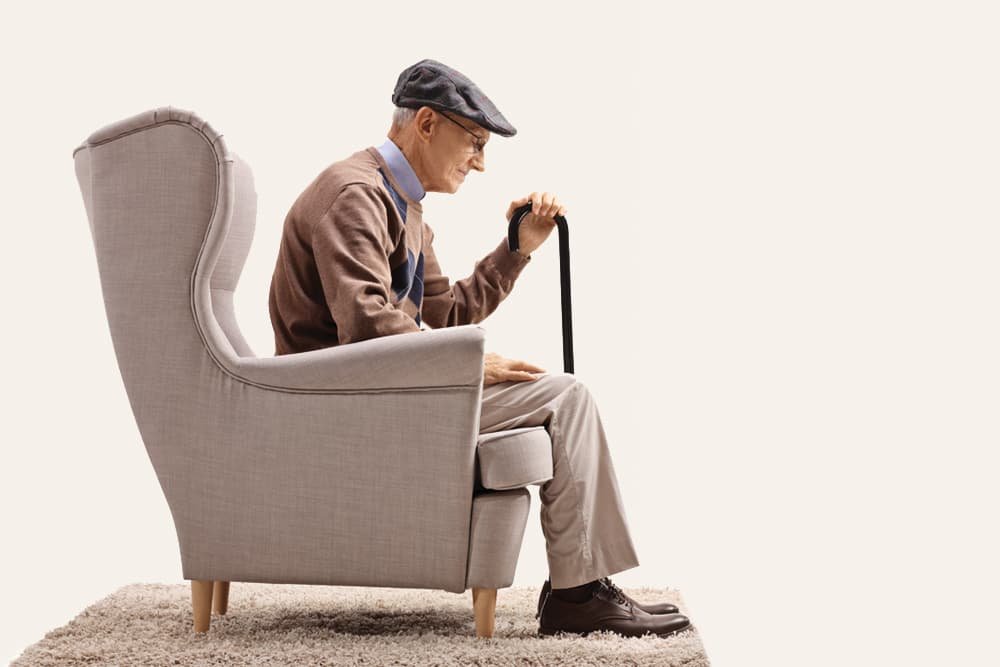

When people have limited in-person connections with others, they often forget to care for themselves and lose motivation to keep up lifestyle habits, such as exercise and healthy eating. They also have a greater risk of sleep disorders, anxiety, and depression.
Isolation also impacts physical health, increasing the risk of heart disease and stroke by 30 percent and the risk of dementia by 50 percent. Isolated people are more likely to die prematurely too.
During the pandemic, senior citizens have especially felt the negative effects of isolation. And video calls don’t substitute for face-to-face interactions, according to researchers. How important that we find ways to encourage and support one another, especially the older adults in our lives!
“How Social Isolation Can Harm Health As You Age—And How to Prevent It,” American Heart Association, heart.org, May 7, 2021.
Nutrition supplement companies have targeted customers with products that supposedly restore one’s fountain of youth by boosting mitochondria. Mitochondria are little powerhouses within our cells that convert nutrients into energy and impact cell health and aging.
While the companies are right about mitochondria’s connection to aging, their product claims are unfounded. The studies they cite are studies of individual nutrients, but not of the actual supplement. The companies fail to mention that vitamin supplements may not even be beneficial if people already have enough of a certain vitamin in their bodies. And there is definitely no proof that the supplements will prevent aging.
Turns out, the best way to slow aging may already be within our reach—exercise and nutrients straight from plant foods themselves!
“Harvard Health Ad Watch: Mitochondria Do a Lot for You—What Can You Do for Them?” Harvard Health Publishing, health.harvard.edu, March 30, 2021.
Anxiety disorders and depression have become common among Americans. Studies reveal that children whose mothers had high stress levels during pregnancy may be more susceptible to these conditions.
One study found that participants who had experienced abnormal levels of stress or inflammation in the womb had “poor stress regulation” 45 years later. “Prenatal stress…creates a vulnerability to [disorders such as anxiety and depression],” the study’s author explained.
But the good news is that these effects aren’t permanent. In fact, a safe and loving environment, particularly in the first three years of a child’s life, can positively impact the child’s ability to handle stress. Adults, too, can learn lifestyle measures to deal with stress and help offset adverse prenatal effects.
“Prenatal Stress Can Program a Child’s Brain for Later Health Issues,” American Heart Association, heart.org, May 6, 2021.
In the past ten years, research has revealed a link between air quality and sleep apnea, a condition in which a person stops breathing for brief moments throughout the night. Air pollution impacts the body by lowering blood oxygen levels, which leads to shallower breathing at night. Numerous studies have shown that the greater the amount of particulate matter in the air, the more severe the sleep apnea.
Regardless of whether you struggle with sleep apnea, air quality is important for good sleep. For starters, do not smoke indoors. Turn on the AC, which helps filter the air, or install an air purifier throughout the house. (Be sure that the air ducts are clean!) Avoid chemical sprays and scented products. Choose hard floors instead of carpets, which can collect particulate matter. And finally, grow indoor plants to decrease carbon dioxide and increase oxygen levels in the house.
“The Relationship Between Sleep Apnea and Indoor Air Quality,” American Sleep Association, sleepassociation.org, April 9, 2021.
© Shutterstock.com